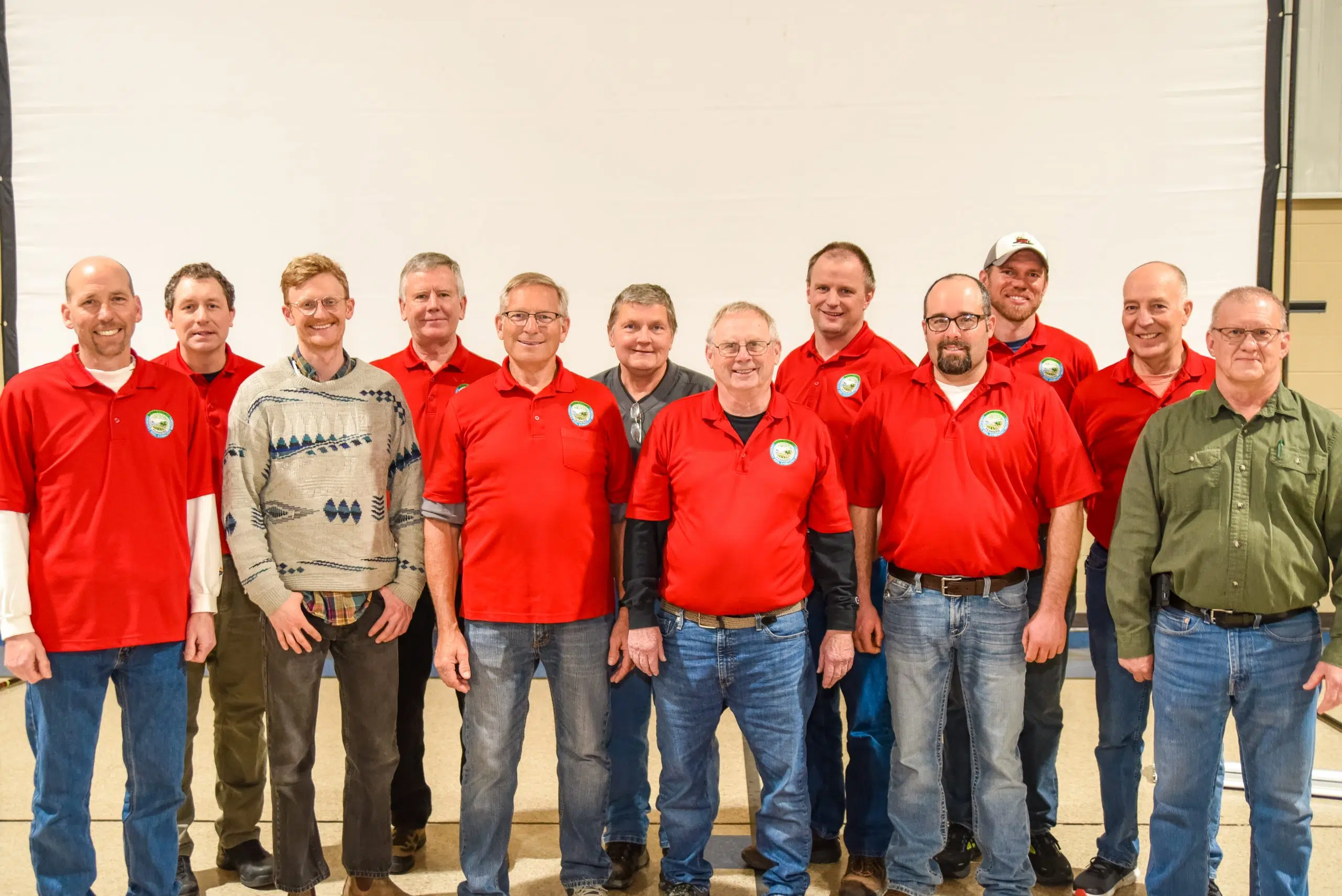JUNEAU, Wis. — Dodge County Farmers for Healthy Soil Healthy Water (DCF), a farmer-led conservation group, hosted its annual Soil Health Expo on Feb. 8. Nearly 175 farmers and community members gathered to network, hear from soil health experts and learn about the group’s continued effort to make a positive impact in their watershed.
The event kicked off with an opportunity for farmers and community members to network and learn from group sponsors. DCF president Tony Pierick shared the group’s accomplishments from 2022 and introduced keynote speaker Dave Brandt.
 |
Brandt is an Ohio farmer and nationally recognized cover crop expert. He spoke to the farmers about conservation tillage, no-till and cover crops. He also tried to teach them how to reduce their crop inputs to improve their bottom line. His farm has not used fungicide or insecticide for 13 years because blooming plants bring beneficial insects. The farm has also found benefits with cover crops providing a dry thatch that releases nutrients every time it rains. With this practice, the farm hasn’t applied phosphorus and potassium fertilizers in the last 30 years. He shared many tips in hopes that local farmers could take one or two back to their farms.
“We’re learning how to do better things with our food today. I hope I can bring across that farmers don’t have to change very much, but they can learn to reduce, improve the quality of their grains that we produce, which will improve the quality of food,” Brandt said. “I firmly believe you can change soils – but you have to be serious about it.”
Dodge County Farmers actively pursue ways to improve soil health and water quality. At the meeting, various speakers shared how they measure their effects through a member conservation survey, the group’s two cost-share programs and a nitrogen use efficiency (NUE) program.
Shawn Wesener, data collection specialist for Farmers for Sustainable Food, helped track conservation practice outcomes. DCF membership has a majority of crop farmers, with corn and soybean rotation being the most common rotation, followed by corn, soybean and winter wheat as the second most adopted.
He shared that the group is heavily involved in cover crop usage in this area. They’re also doing a great job planting a green cover crop in the spring, which is highly adapted. This year was the first year of survey results for the group, establishing a baseline to make comparisons as the group advances into the future.
Bill Stangel is an advisory board member of DCF and a private crop consultant. He presented on the Nitrogen Use Efficiency program. The overall goal of this program is to help farmers dial in their nitrogen management. The program also identified resource concerns of contaminated groundwater and elevated nitrate levels across the county.
“So we thought, here’s an opportunity for us to get in front of it and help address that resource concern that we have and dial in the economic opportunity presented to us this season,” Stangel said.
The participants put together 16 replicated nitrogen trials across the county, including one in Rock County and two in Jefferson County. These are scattered across 12 different farms. The next step is compiling this data by management system based on previous crop cover, crop use and termination timing. Being the first year, there aren’t many conclusions yet, but this will be an excellent project to watch over time with the breadth and density of the data set.
 |
The group hosted several events this past summer highlighting different practices throughout the county. A farmer panel moderated by Will Fulwider, UW-Extension, gave more depth to innovation behind those farmers’ practices. Matt Wondra, Jeff Gaska, David Roche and Chris Conley all shared on topics including planting green, interseeding cover crops into standing corn and rotational grazing on cover crops. The farmers shared their thought processes behind why they started these practices and how they’ve worked on their farms and larger farming system.
“To get started, pick a small spot,” Gaska said. “I picked a field no one could see and didn’t worry what others would think because they wouldn’t see it. Now I do it right in front because I know it works, and I’m proud of it.”
Fuldwider shared the group and area farmers have a great opportunity to do more rotational grazing on cover crops.
“I think as people become more comfortable with cover crops, especially cover crops planted after wheat, or if you’re interseeding, I think that opens up a huge opportunity to graze as cover crops,” Fuldwider said.
One of the most significant benefits of being a member of DCF is learning from other members about what has been successful and what they have learned not to do again. The group plans to host more field days to continue these conversations this summer.
At the members’ meetings, DCF held an election for the board of directors bringing on one new member, Randy Braker. Returning board members are Tony Peirick, president; Marty Weiss, vice president; Brendon Blank, secretary; David Roche, Treasurer; Chris Conley and Jeff Gaska. The group also works closely with advisory board members Bill Stangel, Will Fulwider, Philip Laatsch, Bill Nass, Robert Bird, Andrew Condon, Dale Macheel, Jared Winter and John Bohnonek.






